This post was originally published on October 15th, 2020.
Personally the Darter might just be my favorite plug to fish in the surf.
Identified by their distinct slope-headed profile, and their unique action in the water, the darter should have a place in every New England surfcasters' bag.
Darters are an ideal plug to fish in the open surf, especially in areas with light to moderate sweep or current. Water movement, specifically current flow, is critical for a darter to swim correctly.
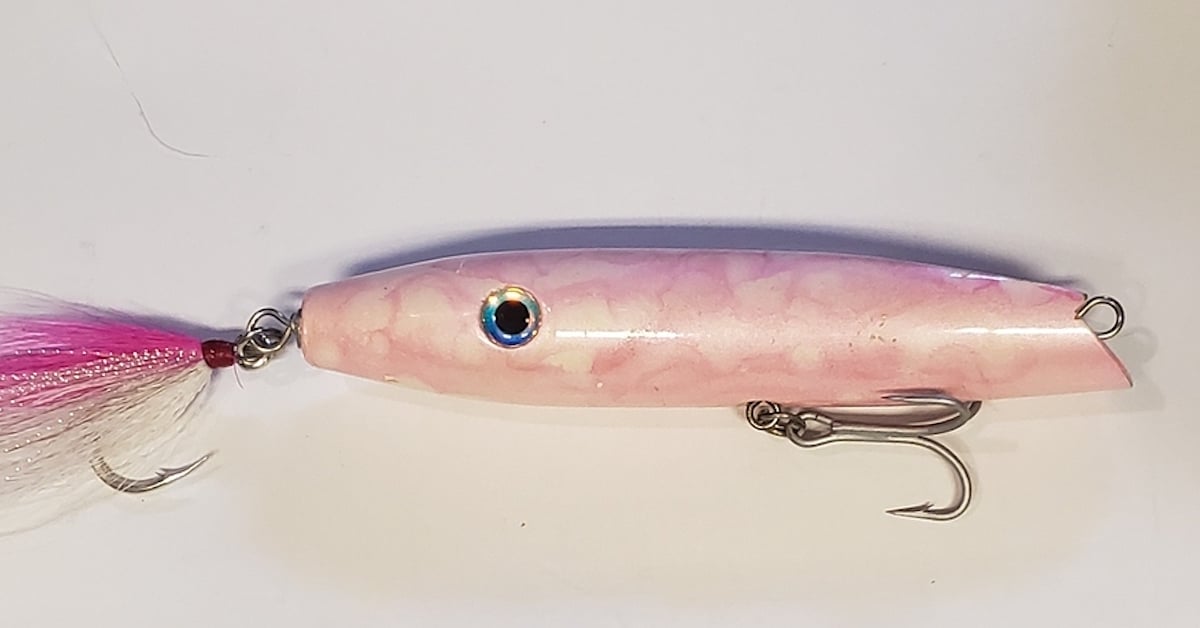
An LS69 squid darter looking pretty with a dressed tail.
How To Retrieve A Darter
When retrieved in current, the darter should dart (or zig zag) from side to side. This extremely unique and life-like action is what gives the darter its name.
Unlike other common plugs in the surfcasters arsenal (such as the bottle plug or the metal lip) you usually won’t feel a darter “working” on the end of your line. This tends to throw off anglers at first as they struggle to tell if their plug is swimming correctly on the retrieve.
However, rest assured that when fished correctly on a straight and slow retrieve, the darter will work to fool striped bass of shapes and sizes.
The Back-Swim Technique
It’s worth noting that darters (like bottles and some metal lips) are a good candidate to backswim. To accomplish this technique, the angler stands at the end of an outflow or breachway and "feeds" the plug back into the outgoing flow.

Breachways and places with a lot of current (like the Cape Cod Canal) can be good places to try the back-swim technique.
Once it’s back 75 or 100 yards you dig your plug into the current with a couple fast cranks of your reel and then begin the painfully slow retrieve while allowing the plug to hang and “work” against the current.
When this technique is done right a single retrieve can take several minutes. This technique might not appeal to the impatient among us, but it often produces consistent and quality fish.
Once again I emphasize that painfully slow is often the name of the game when it comes to surf plugging.
Recommended Darters
Hands down one of the most productive darters in any surfcasters' bag is the SuperStrike darter or as it is commonly called the Zig Zag. Because they are made of plastic the SS darter is an excellent casting plug and is very consistent on the retrieve.
A saying among the Montauk regulars goes “if you don’t have a yellow Superstike, then go home” and in my opinion this is advice also holds true for many spots on Cape Cod.
Apart from Superstrike, the Northbar Darter is a nice plastic darter which tends to run slightly shallower than their SS counterparts.
A number of plug makers also produce high quality wooden darters including (but not limited to) Linesider69, Gibbs, Wally’s and L.I. Fish in Vermont.
Bottle Plugs
Bottle plugs and bottle darters are another time-tested style of plugs that really shine in big surf and heavy current. The bottle plug is the more classic design of the two, with a large scooped “mouth” that is built to catch the water and dig in deep.
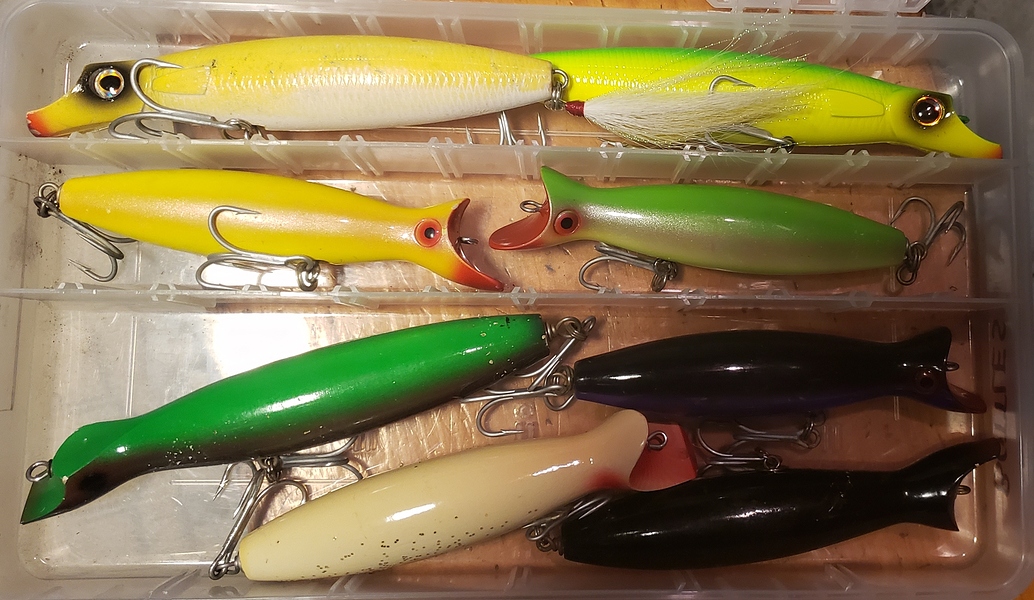
A handful of bottle plugs and bottle darters (SS, Gibbs and Northbar)
The bottle darter has a slightly more subtle lip design, but still retains that scooped mouth which functions extremely well in heavy current and big water.
If metal lips and needlefish are the precision tools of the plug world, then the bottle plug/darter are the sledgehammers. There’s nothing subtle about these plugs, from their deep-diving capabilities to the heavy pulsing action you’ll feel as they work on the end of your line.
I tend to favor the bottle plug when onshore winds, whitewater and big surf are at play, and I prefer the bottle darter in heavy currents. Both plugs have a place in my bag when I’m fishing a big storm, a heavy onshore wind, or a deep and fast outflow.
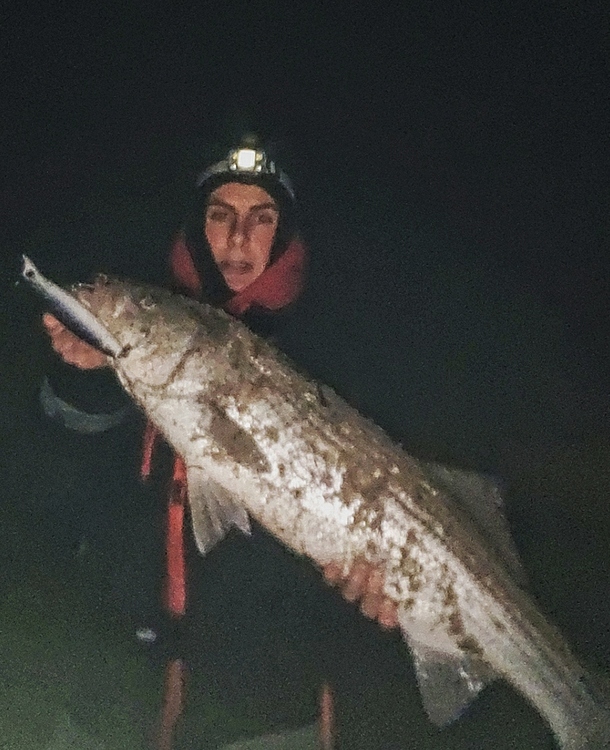
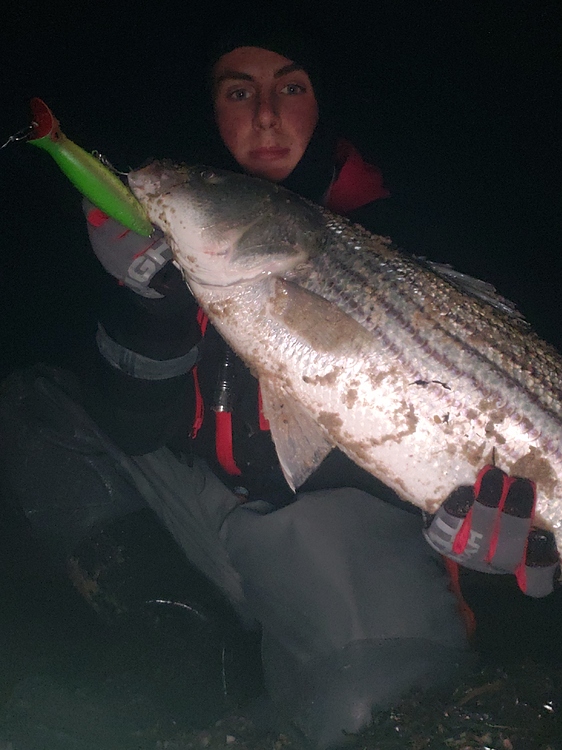
The Northbar bottle darter and SS little neck being put to work fishing an onshore NE blow
Recommended Bottle Plugs
Once again Superstrike makes one of the best Bottle plugs on the Market. The current lineup includes an inbuilt rattle, which just adds to the aggressive presentation of the plug.
For truly harsh conditions that call for heavy tackle and big plugs, almost nothing beats the monster 3 oz wooden Gibbs bottle plug. The largest Gibbs will dig into waves and slop like nothing else on the market.
As far as bottles go, the Northbar Bottle is another very nice plastic plug. It’s action is a little more subtle than the Gibbs or the SS, but it shines in heavy current-especially when larger baits are around.

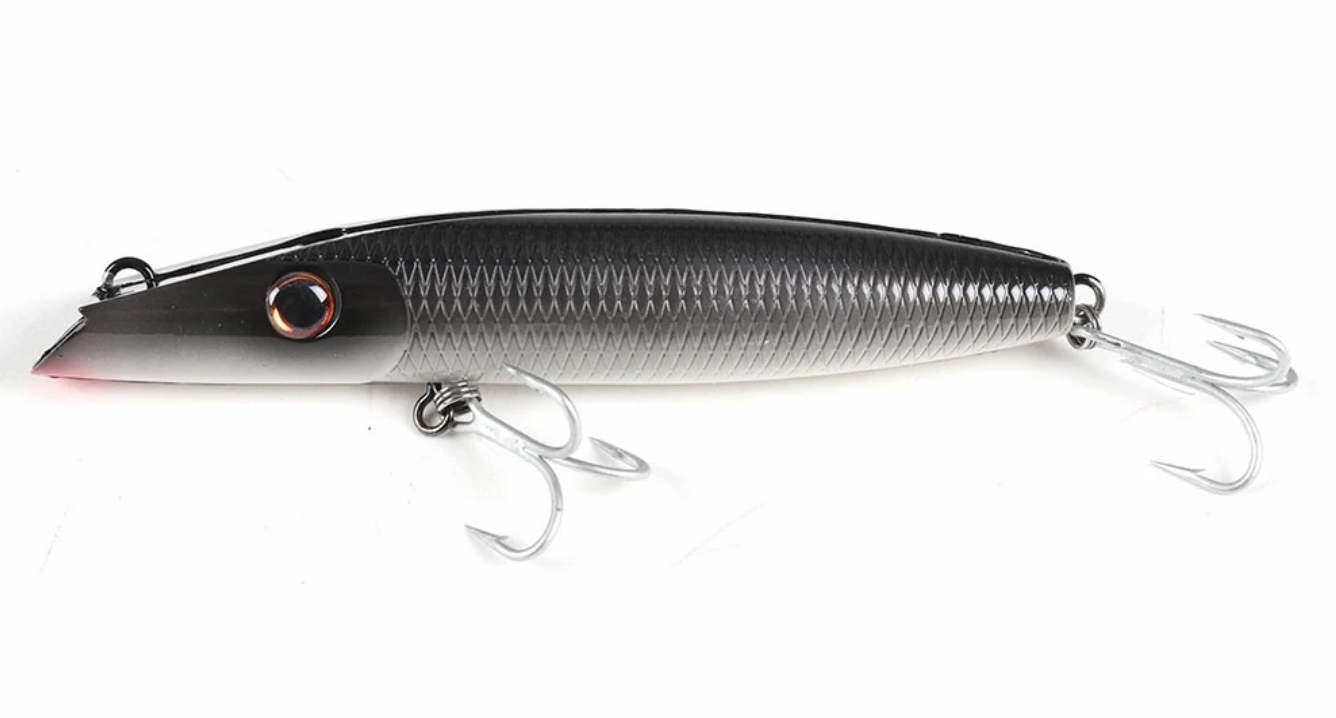
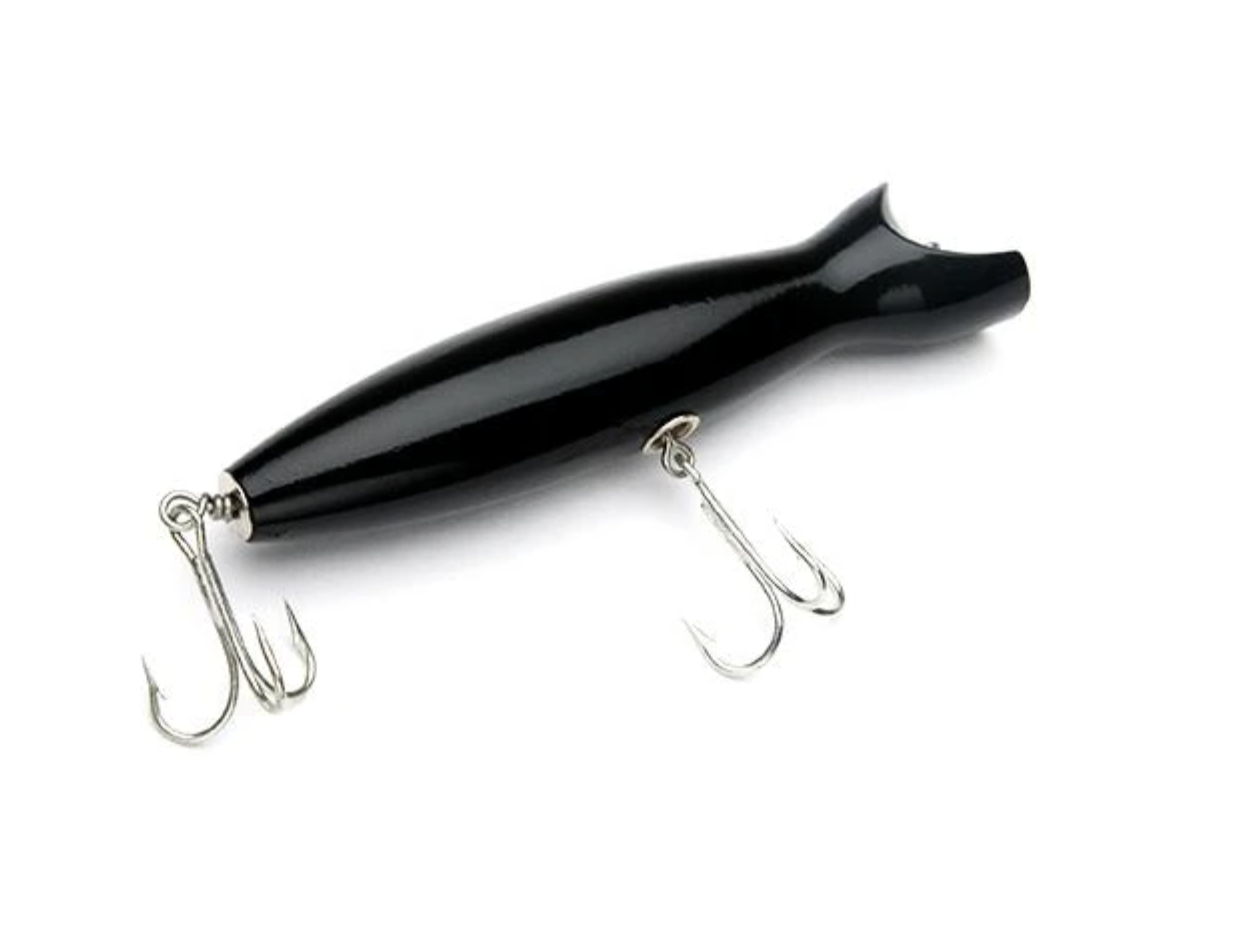
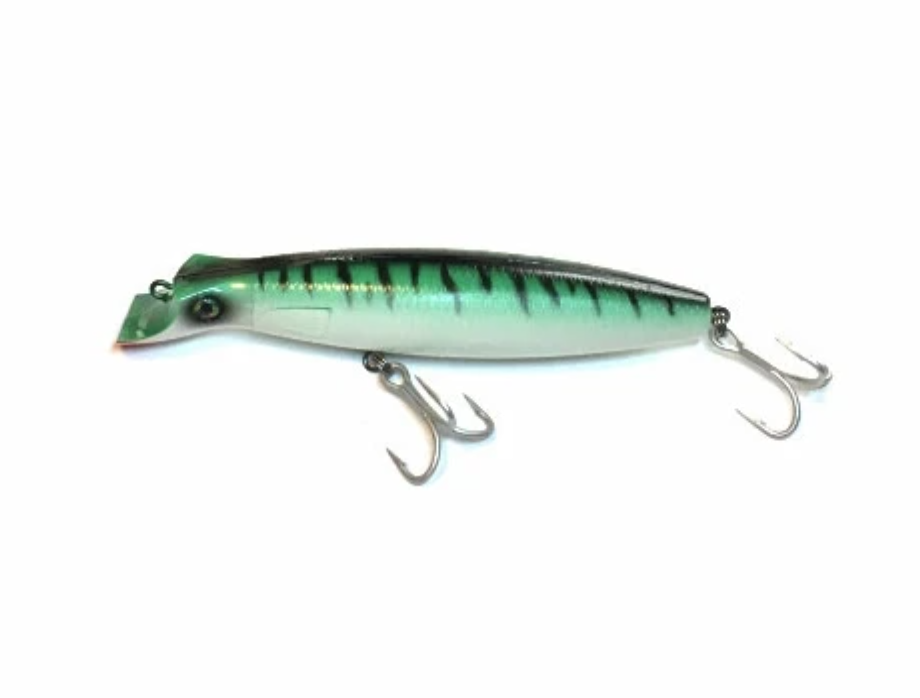
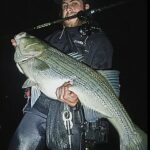
I typically like to take rear hooks off. Will the SS darter swim the same way without the rear hooks still attached? Keep up the good work and perhaps you can create some video content showing technique in the future?
I usually dig a bottle plug in with a few sharp cranks. Then a slow steady retrieve against the current is best. In heavy surf you may have to slow down or speed up the retrieve depending on the wave action so that you always have consistent contact with your plug.
Nice write-up. My 1st success at the Canal was with a White SS Darter … magic swimmer was striking out, but this was killing ’em.
Do you use a darter on the with beach without significant current? If so, how?
How about the smaller darters (hybrids) … Mag Darter and Swarter? Best uses?
I’ve caught more fish on the mag darter this season than potentially all my other lures combined. It’s likely a product of our current season, but the 5″ is where it’s at. Haven’t been able to get them to bite the larger profile versions. That being said, I’m not a fan of using the mag darter in strong current, or in turbulent conditions like rough surf. Seems to just get lost in the waves, and loses its magical ‘wiggle’. I use a slow retrieve in steady current, or calm conditions. Slow and steady man. This lure has been so effective for me that it’s become my de facto ‘fish finder’ to see if they’re out there. I’ve rotated lure after lure many times without success…only to switch over to the 5″ mag darter and immediately start catching.
Matt, do you use a wire leader when using a mag darter? Or do you just use a heavy monofilament for a leader with a snap at the end to make it quick and easy to change lures? Do you fish with monofilament or braided line? I’m a rookie and have fished the canal 20 times and never have caught a damn thing.
Don’t know the canal much, but in general, I and the guys I go to for advice, use braid, and a fluro leader. I personally use 30lb braid and often a 40lb fluro leader for surf and even much inshore fishing and it does the job just fine. From what I understand, canal guys often go heavier braid, 40, 50, 60 etc, and fluro leader that’s in that same ballpark. For stripers, I don’t know anyone really using wire leaders.
Thanks for taking the time to write that comment Kyle!
Hey Raymond 👋 As Kyle mentioned in his comment, most guys only use wire when there are bluefish around. I personally use a 30 pound mono or fluorocarbon leader when fishing from most beaches, and a 50 pound mono or fluoro leader when fishing the canal. I use 30 pound braid for most beaches and 50 pound braid at the canal. I will also use clips, but at the canal I’ll sometimes tie direct if there are huge bass around. The pressure of fighting a big bass in the canal’s current can lead to clip failure, although it doesn’t happen very often.
SAME HERE 1 OR 2 FISH IN 4 YRS NOT FUN BUT GOOD SCENERY.
Nice blog Calvin! The info on both lure types is great. Any special retrieve on the bottle plug? Does the lure stay below the surface? Thanks!
I usually start off my retrieve with a few sharp fast cranks of the reel to dig the plug into the surf. Then a slow steady retrieve against the current is usually best. In heavy surf you may have to slow down or speed up your retrieve in accordance with the wave action to maintain constant contact with your plug.
??